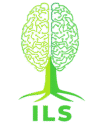
Mindfulness
The Link Between Speech and Language Difficulties and Internal Locus of Control: Analysis, Impact, and Remedies
Imagine Solutions with Urban Youth Initiative inc.
1 July, 2024
Speech and language difficulties can significantly impact an individual’s sense of internal locus of control. Internal locus of control refers to the belief that one has control over their own life and experiences. When individuals struggle with speech and language difficulties, it can affect their self-perception, confidence, and ability to navigate the world around them. We will delve into the relationship between speech and language difficulties and internal locus of control, explore the impact of these difficulties on individuals, and discuss potential remedies to address these challenges.
Analysis: Individuals with speech and language difficulties often face communication barriers that can hinder their ability to express themselves effectively, interact with others, and engage in social situations. These challenges can lead to feelings of frustration, isolation, anger, possible aggression and low self-esteem, impacting their sense of control over their own lives. As a result, individuals may develop a more external locus of control, believing that external factors such as luck, fate or people pleasing to have a greater influence over their experiences than their own actions.
The impact of speech and language difficulties on internal locus of control can be profound. Individuals may struggle to advocate for themselves, assert their needs and desires, and feel empowered to take charge of their lives. This can lead to a sense of the following: defensiveness, combativeness, frustration, isolation, helplessness, dependency, and a diminished sense of, self-efficacy. In turn, this can affect various aspects of their private and professional lives, including relationships, academic performance, and career opportunities.
Remedies: Approaches and Strategies
1. Speech and Language Therapy: One of the primary remedies for addressing speech and language difficulties is through speech therapy. Speech therapists can work with individuals to improve their communication skills, enhance their confidence, and develop strategies to overcome their challenges. By building these skills, individuals can regain a sense of control over their ability to communicate effectively.
2. Counseling and Support Groups: Counseling and support groups can provide individuals with a safe space to explore their feelings, address underlying emotional issues, and connect with others facing similar challenges. These resources can help individuals develop coping mechanisms, build resilience, and cultivate a more positive self-image, ultimately strengthening their internal locus of control.
3. Skill-Building Activities: Engaging in activities that promote skill-building, such as public speaking workshops, communication exercises, and social skills training, can help individuals enhance their communication abilities and boost their confidence. By acquiring new skills and experiences, individuals can expand their sense of control over their own capabilities and navigate social interactions more effectively.
Concluding, speech and language difficulties can have a significant impact on an individual’s internal locus of control, affecting their sense of empowerment, self-efficacy, and ability to navigate the world around them. By addressing these challenges through speech therapy, counseling, support groups, and skill-building activities, individuals can enhance their communication skills, build resilience, and cultivate a stronger sense of control over their own lives. Through these remedies, individuals can overcome the barriers posed by speech and language difficulties and embrace a more empowered and confident sense of self.
www.imaginesolutionsuyi.com
New York, NY
